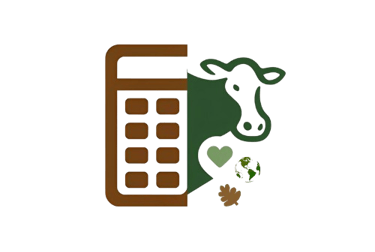

"A plant-based diet does not provide enough protein."
The RDA for protein is 56 g/day for the average adult, yet most Americans consume nearly 100 g/day, and globally the average intake is ~68 g/day, again above requirements. Vegans can easily meet their protein needs with foods like lentils (~18 g/cup), tempeh (~16 g/3 oz), seitan (~21 g/3 oz), and chickpeas (~15 g/cup), easily hitting their daily protein target without any meat.
“Animals don’t really feel what we feel. We just project human emotions onto them.”
Pigs exhibit 92.5% sentience and chickens 87.6% compared to humans. Even after adjusting for neuron counts, pigs retain 48.4% sentience and chickens 32.6%, showing they experience pain, fear, and pleasure far more than most people realise. Even fish and shrimp feel, possessing nociceptors, specialized pain receptors, that let them detect harmful stimuli, learn from experiences, and avoid danger. If you still doubt it, remember that pigs, cows, and other farm animals are just as intelligent, emotional, and capable as your dog or cat - actually even smarter.
"If plants feel pain, does that mean vegans are causing more harm than meat-eaters?"
While plants can respond to stimuli such as light or touch, they lack pain receptors, brains, and the capacity to experience emotions, fear, or suffering like animals do. Even if plants could feel pain, the majority of crops grown worldwide are used to feed farm animals, making omnivorous diets responsible for harm to these plants on top of the direct slaughter of sentient beings. From both a biological and mathematical perspective, a plant-based diet causes far less overall suffering.
"We need 120 grams of protein per day."
The claim that we need 120 grams of protein per day is largely a marketing-driven exaggeration. The Recommended Dietary Allowance (RDA) for average adults is 0.36 g per pound (0.8 g per kilogram) of body weight. The 120 g target is mostly relevant for highly trained athletes, not the general population. The widespread promotion of 100 g+ protein daily is a marketing strategy pushed by the meat and supplement industries.
"Vegans kill more animals than meat-eater."
While harvesting plant crops can unintentionally harm small animals or insects, most crops are actually grown to feed livestock. An omnivorous diet requires far more crops than plant-based diet, leading to more indirect deaths in addition to the intentional slaughter of billions sentient animals each year. So in summary, vegan diet results in a significantly lower overall animal death.
"Producing almonds actually consumes more water than producing beef."
Although almonds use slightly more water per pound/kilogram than beef, this is misleading. Considering typical portions, beef serving uses 730 gal (2,772 L), while 1 oz (28g) of almonds needs just 118 gal (448 L). Per calorie, almonds use 4 L vs. 10 L for beef; and per gram of protein, 26 L vs. 112 L. So in reality, almonds are far more water-efficient.
"On a plant-based diet you will lack B12."
It’s true that plant-based diets don’t naturally provide B12 but neither do animal-based diets anymore. B12 is made by microbes in soil, not by animals. Since modern farming and sanitation remove those microbes, farm animals are routinely given B12 supplements. So, when people eat meat, they’re just getting recycled supplements. Vegans simply take B12 directly from their own supplements - and it’s cleaner, much cheaper, and kinder.
“Does the fact that vegans try to make plant-based meat taste like real meat confirm that humans are naturally omnivores?”
Not really. If humans were naturally meat-eaters, we’d enjoy plain, raw meat on its own - but most people don’t. Instead, we season it with plant-based herbs, spices, and sauces to make it appealing. So the real question is: "If humans were naturally meant to eat meat, why do we need plants to make it taste good?"


